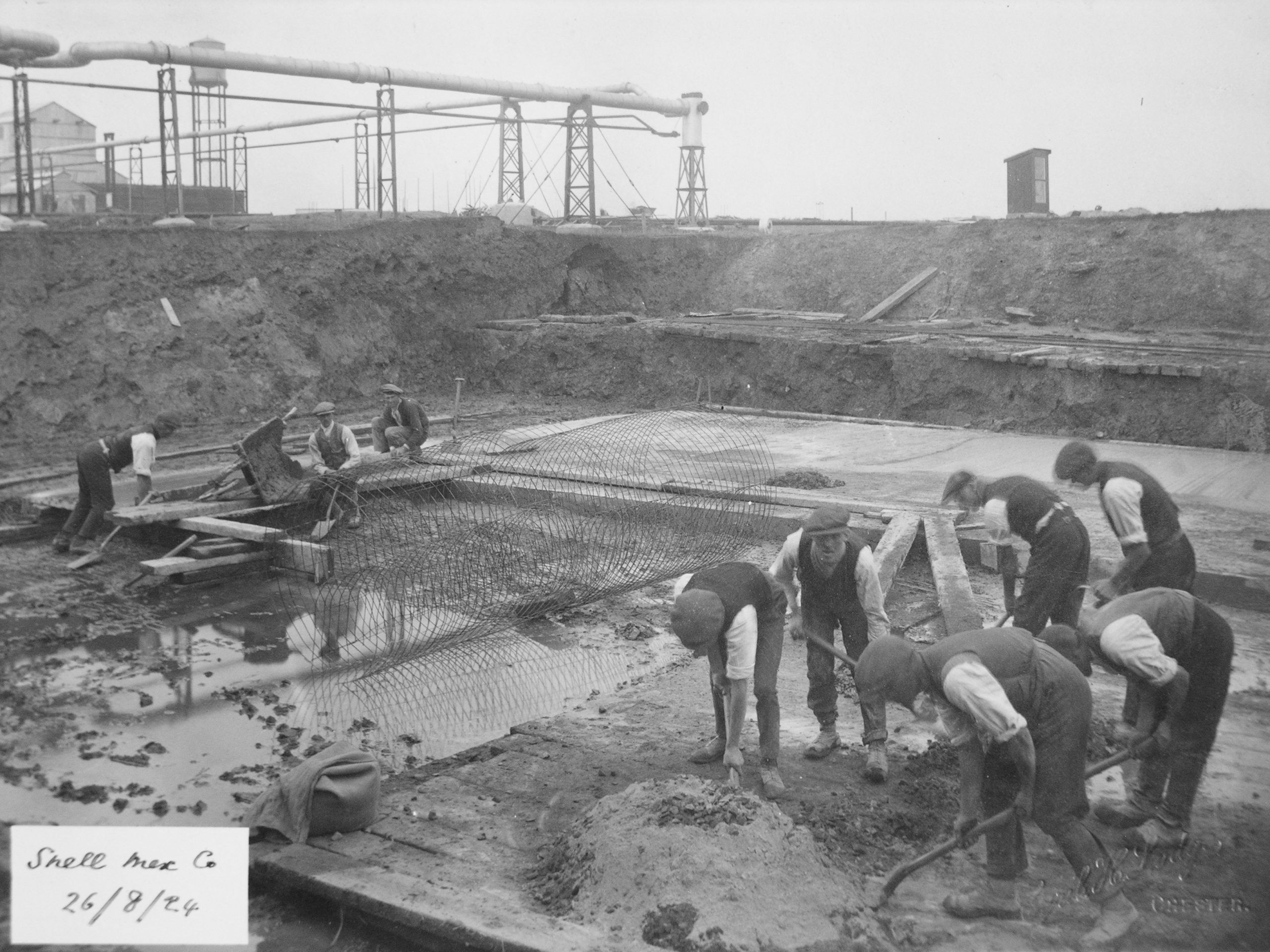The hydrocarbon refining complex which every day delivers 16% of Britain’s fuel oils for road transport celebrates its centenary today.
Originally developed by Shell Oil, Stanlow at Ellesmere Port in Cheshire began in 1924 – pictured – as a production site for bitumen, also blending and cleaning imported crude oil. It is now among the UK’s largest and most complex refineries, processing 10 million tonnes of crude each year.
Following its purchase in 2011 by Essar Oil UK, since re-branded as EET Fuels Ltd, Stanlow has received major investment, advancing the owners’ ambitions to make it the world’s first low carbon refinery, and among the globe’s biggest hubs for steam-cleaning fossil fuels into “blue” hydrogen.
EET Fuels, controlled by billionaire brothers Prashant and Ravi Ruia, today announced its non-specific intention for forthcoming events in celebration, including donations to charities community groups. Details will be released in coming weeks.
EET chairman Prashant Ruia commented: “For a century, Stanlow has kept Britain moving.
“We are immensely proud of the refinery’s heritage and its unwavering commitment to supplying high-quality products and fuels safely and reliably. We want to recognise the thousands of colleagues who made this happen.
“The Stanlow story is only just beginning. The massive transition strategy we are implementing, with the ambition of making Stanlow the world’s first low carbon refinery, as well as the UK’s leading producer of hydrogen as part of the HyNet consortium, is set to re-position Stanlow and the North West of England for the next 100 years and beyond.”
Manufacturing has taken place at Stanlow since 1924, first of bitumen and specialist solvents. Aviation spirit was added to the output during World War 2.
Recognising the importance of refineries closer to customer markets, Shell in 1949 began a three-year build programme to create a fully-fledged crude oil refinery.
Essar Group acquired Stanlow in 2011, and has since invested a claimed $1 billion on improvements.
Now employing more than 700 people directly and the same total again in its local supply chain, Stanlow remains a prominent supplier to the North West’s major fuel retailers, to Manchester Airport and leading commercial airlines, and to the region’s trains and buses.
Through HyNet and other initiatives, EET Fuels is investing $1.2 billion over the next five years to decarbonise its operations. It aims for a 95% cut in carbon emissions by 2030 through energy efficiency, carbon capture and fuel switching. If achieved, that figure will deliver a 12.5% reduction the North West’s overall carbon emissions.
In February 2023, Essar announced a new entity Essar Energy Transition (EET) would position Stanlow as a leading hub for energy transition in the North West. EET plans to invest US$3 billion in developing a range of low carbon energy transition projects across the site before 2029.
They include state-of-the-art ventures in industrial Carbon Capture and Hydrogen Fuel Switching, to be achieved this decade.
The Stanlow site is also home to EET Hydrogen, founded in 2022 under the name Vertex Hydrogen. EET bills the offshoot as the UK’s leading hydrogen production project. It is developing 1GW of blue hydrogen for the UK market, with follow-on capacity set to reach 3.8 GW.
More on Stanlow’s centenary here.




